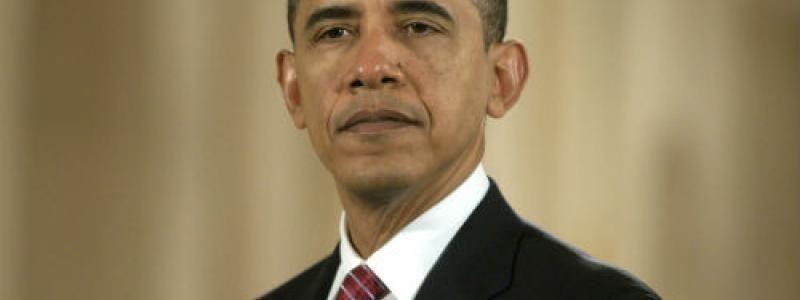Is Obama's Net Neutrality a Win for Consumers or Political Posturing?

On Monday, President Obama sent shockwaves through the internet with his proposal to the FCC regarding the future of net neutrality. Both his written statement and video message regarding the laws governing net neutrality can be seen as a huge win for people who believe the internet should remain open and free.
Whether or not you’re familiar with the history of net neutrality, Obama’s recent take has probably left you scratching your head with a little confusion, and hopefully, a little skepticism. Is this merely a political move? Will FCC chairman Tom Wheeler heed Obama’s suggestions?
What the Heck is Net Neutrality?
For those unfamiliar, net neutrality is the idea that internet connections should be unbiased, in terms of speed and access. A neutral internet means an ISP can’t block a legal site or provide faster access to sites they prefer.
This issue has come to light recently based on the desire of the ISPs to be able to create a “fast lane” and a “slow lane” on the internet. The “fast lane” would provide priority traffic to companies willing to pay the ISPs an extra fee. The “slow lane” would contain the traffic of everyone else, providing an unfair advantage to those in the “fast lane”.
What Obama Suggests to Support Net Neutrality
The very best part about Obama’s recent stand on net neutrality is how specific it is. The president made four distinct points, leaving very little wiggle room.
- No blocking – If a site is legal, it cannot be restricted in any way.
- No throttling – Every site has equal access to bandwidth.
- Increased Transparency - Openness in not only how ISPs connect to consumers, but also in how ISPs connect to each other
- No Paid Prioritization – No service should receive special privileges from an ISP for paying, or receive unequal service for not paying.
Legislation to Protect Net Neutrality
Perhaps the most noteworthy point of the recent address is the call to classify internet service under Title II of the Telecommunications Act. This would define the internet as a public utility, much like power or telephone service.
While this can be seen as a win for most consumers, it came with some backlash. Giants such as Verizon and Comcast seem to believe regulating a futuristic technology such as the internet under an antiquated bill such as the Telecommunications Act of 1934 is silly.
“I believe the FCC should reclassify consumer broadband service under Title II of the Telecommunications Act — while at the same time forbearing from rate regulation and other provisions less relevant to broadband services.” – President Obama
The biggest caveat of this statement is the forbearing of unnecessary rules, such as rate regulation. So while internet service would be classified as a Title II utility, only appropriate rules and regulations would be tacked on. This puts to rest any notion of the government interfering with the rates ISPs charge.
So This Means the FCC is going to Comply, Right?
Wrong. This proposal is merely a suggestion to the FCC, albeit from a very powerful person. The FCC is an independent organization. They are allowed to create whatever rules and regulations they like deem appropriate.
“The FCC is an independent agency, and ultimately this decision is theirs alone.” said Obama in his written proposal. Although we can be hopeful that the FCC will indeed take president Obama’s advice, there’s certainly no guarantee that they will. However, they have agreed to delay the vote on net neutrality until 2015.
Related Blog Articles
- Want To Save Money? Try Smartphone Deals From MVNOs
- FreedomPop Launches Free International Calling Service
- Comcast Launches Vocal TV Guide
- Verizon Wireless Makes Changes To Its Early Termination Policy
- AT&T Launches Data Deal That Offers 15 Gigabytes For The Price Of 10 Gigabytes
- T-Mobile Introduces Early Black Friday Free Tablet Promo
- T-Mobile Launches International Calling Promo
- Beats Music To Be Automatically Installed On All iOS Devices In 2015
- Here’s A New App That Lets You Save On Your Groceries
- Boost Mobile, Virgin Mobile Offer Discounts On Selected Smartphones For Black Friday
Related Blog Posts
- Report: AT&T facilities are used for NSA surveillance program
- Tips for achieving a smartphone detox this summer (or at least for a few days)
- Instagram hits 1 billion users; launches new IGTV video uploading service
- Facebook introduces game shows platform, with live interactive vids
- California Democrats combine two separate net neutrality bills


 Menu
Menu